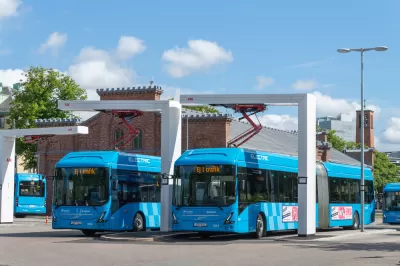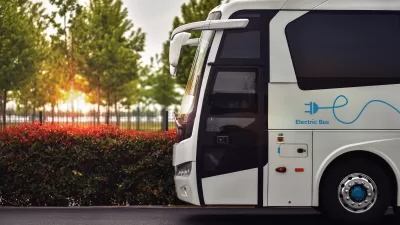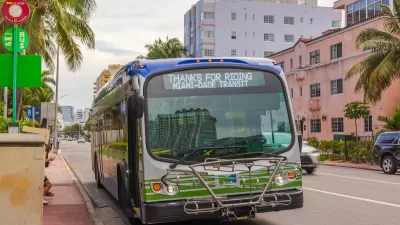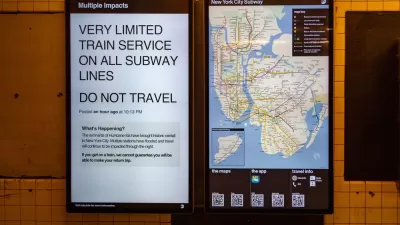Two federal grants will award close to $1.7 billion to state and local agencies to replace aging transit fleets and boost workforce development initiatives.

As part of the Biden administration’s efforts to shift the nation’s energy supplies away from fossil fuels and reduce emissions in the transportation sector, the Federal Transit Administration (FTA) announced “nearly $1.7 billion” in funding aimed at supporting the modernization and electrification of public transit fleets in 2023. The funding, part of $7.5 billion allocated in the Bipartisan Infrastructure Law, includes $1.22 billion for the Low or No Emission (Low-No) Program and $469 million for the Grants for Buses and Bus Facilities Program.
According to a press release from the Department of Transportation (USDOT), “Made possible by the President’s Bipartisan Infrastructure Law, which included historic funding to support public transportation, this Notice of Funding Opportunity (NOFO) is for two programs that help transit agencies replace old buses, provide good-paying jobs, improve transit affordability and reliability, invest in community health and environmental justice, and contribute to the President’s goal of net-zero emissions by 2050.”
The programs require that five percent of each grant is directed to workforce development efforts to help close the staffing gap faced by many transit agencies. The grants also prioritize “projects that advance environmental justice” as defined by the Justice40 Initiative.

Planetizen Federal Action Tracker
A weekly monitor of how Trump’s orders and actions are impacting planners and planning in America.

San Francisco's School District Spent $105M To Build Affordable Housing for Teachers — And That's Just the Beginning
SFUSD joins a growing list of school districts using their land holdings to address housing affordability challenges faced by their own employees.

The Tiny, Adorable $7,000 Car Turning Japan Onto EVs
The single seat Mibot charges from a regular plug as quickly as an iPad, and is about half the price of an average EV.

Seattle's Plan for Adopting Driverless Cars
Equity, safety, accessibility and affordability are front of mind as the city prepares for robotaxis and other autonomous vehicles.

As Trump Phases Out FEMA, Is It Time to Flee the Floodplains?
With less federal funding available for disaster relief efforts, the need to relocate at-risk communities is more urgent than ever.

With Protected Lanes, 460% More People Commute by Bike
For those needing more ammo, more data proving what we already knew is here.
Urban Design for Planners 1: Software Tools
This six-course series explores essential urban design concepts using open source software and equips planners with the tools they need to participate fully in the urban design process.
Planning for Universal Design
Learn the tools for implementing Universal Design in planning regulations.
Smith Gee Studio
City of Charlotte
City of Camden Redevelopment Agency
City of Astoria
Transportation Research & Education Center (TREC) at Portland State University
US High Speed Rail Association
City of Camden Redevelopment Agency
Municipality of Princeton (NJ)





























